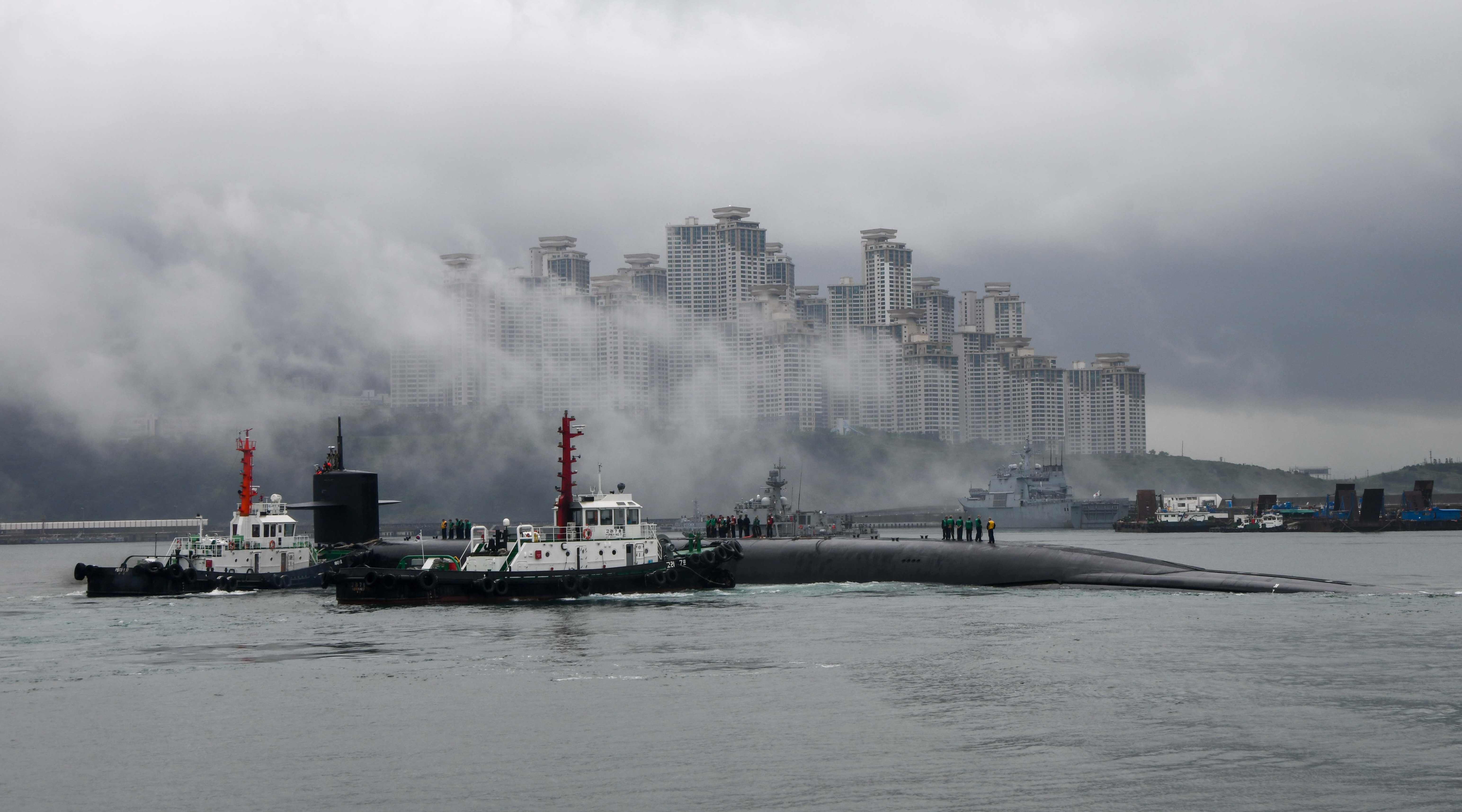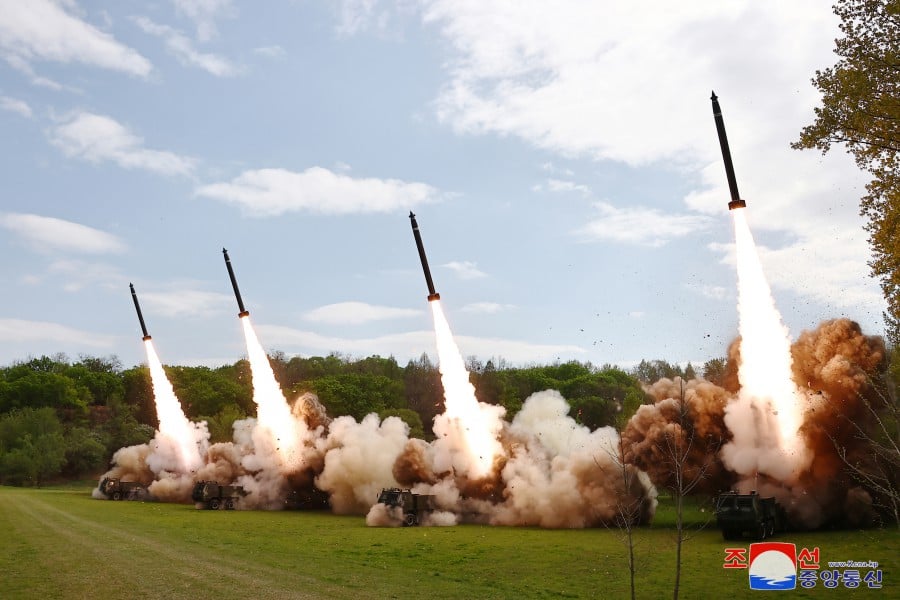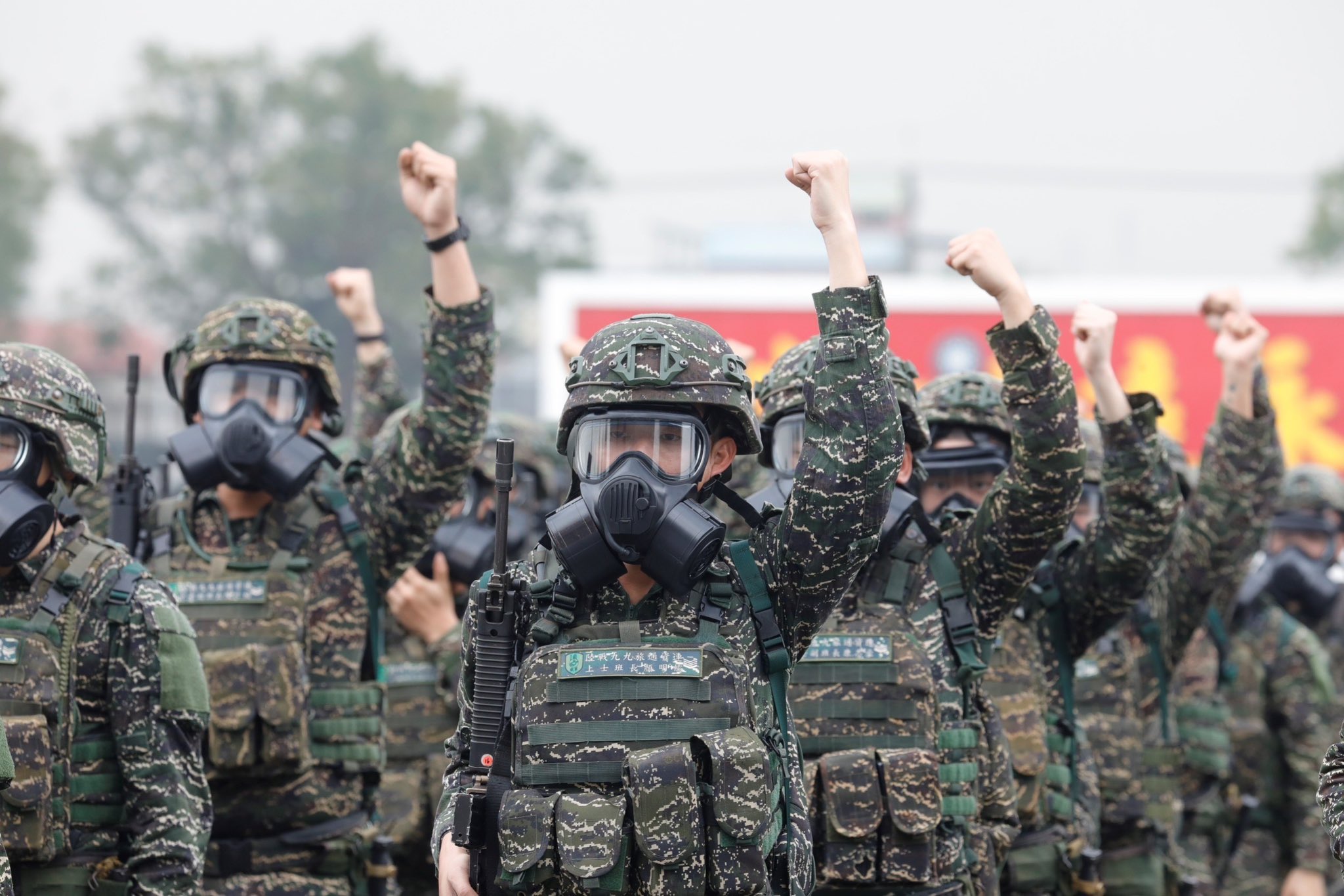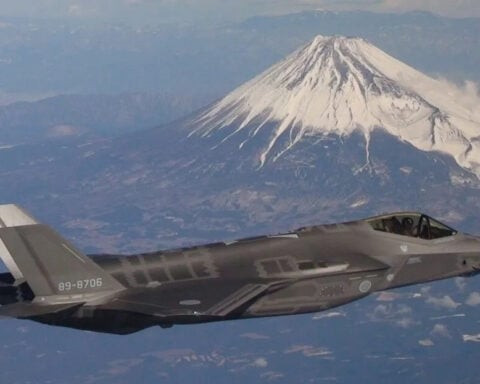
The American public’s willingness to see Tokyo become a nuclear power and its support for positioning U.S. nuclear weapons in Japan and South Korea as ways to contain and deter North Korea was “shocking news” to one of Japan’s leading pollsters.
Speaking at the Brookings Institution in Washington, D.C., Yasushi Kudo, of Genron NPO, who partnered in conducting the most recent survey of American and Japanese opinion on the nuclear crisis with North Korea, said through a translator the new findings “could [create] a serious discussion of having nuclear power” as part of its self-defense forces inside the government leadership.
Kudo added American public opinion is in sharp contrast to the Japanese on these two issues; but it may provide impetus to Prime Minister Shinzo Abe’s drive to restructure constitutionally its Self-Defense Forces and their deployment outside the home islands and territorial waters.
Defense Secretary James Mattis, since he took office and most recently this fall, has tried to assure South Korea and Japan that both are under the U.S. “nuclear umbrella” in the growing tensions.
Although in one year, he noted Japanese public opinion showed a greater willingness to becoming a nation possessing nuclear weapons. The support in the public for that proposition is not broad, standing at nine percent in the latest poll; up from 5.1 percent.
Later in answer to a question, “non-nuclear is the only option for many Japanese” in looking at North Korea. “A “peaceful solution is the best, [but the question] is “how do we achieve a freeze” in Pyongyang’s nuclear weapons program and long-range ballistic missile testing.
The poll results in Japan show the public there by 68 percent oppose its or South Korea becoming nuclear military powers, and slightly more than half oppose the positioning of American nuclear weapons on the home islands or the peninsula.
Shibley Telhami, who partnered in the survey as head of the University of Maryland’s Critical Issues Poll, noted that 70 percent of the Japanese surveyed opposed recognizing North Korea as a nuclear state. At the same time, 63 percent of the Japanese said they viewed President Trump’s handling of the crisis as either very or somewhat unfavorable. They also see him as a great threat to world security in the same way as they assess Kim Jong Un.
This view of Trump makes it difficult for nations like Japan to accept him or the United States as having the capacity to lead multi-lateral talks to resolve the matter. Both the Genron survey of 1,000 Japanese adults and the University of Maryland’s survey of 2,000 Americans found large majorities in the public in favor of multilateral negotiations to end the stalemate over nuclear weapons and missile testing.
But Telhami also noted a sharp division in American opinion when it came to using military force. Fifty-three percent of Republicans saw it as an option; but as a group, the American who responded through e-mails or telephone calls, only 32.5 percent supported a military option. Almost half of the Japanese respondents opposed any military action.
The survey in Japan was taken by handling out interview sheets in door-to-door canvassing but collected later.
In this joint survey and also a recent one in South Korea, the status quo on the peninsula — Kim remains in power, Pyongyang has nuclear weapons, the United States remains in alliance with Seoul and Tokyo and U.N. Security Council economic sanctions remain in place — will likely continue into the future, but does not resolve the underlying crisis.
For example, South Koreans’ views of “their northern cousins” are “now quite fearful and quite negative,” Richard Bush, a Far Eastern expert at Brookings, said. He added that he didn’t expect talks between the two Koreas that open Tuesday on the North’s participation, possibly jointly with the South, in the Winter Olympics will be able to achieve much beyond that. “Do [the North Korean leaders] really want to have talks?”
Michael O’Halloran, of Brookings who moderated the later discussion, said the goal should be “how to get North Korea to freeze nuclear production,” which goes beyond weapon, and “not give them too much” in return beyond food aid or other similar trade assistance.
“One thing the U.S. could give [is] some type of cap on military exercises.” He suggested 15,000 or 20,00 participants and the number be in consultation with military officials to ensure security and readiness were not affected.





